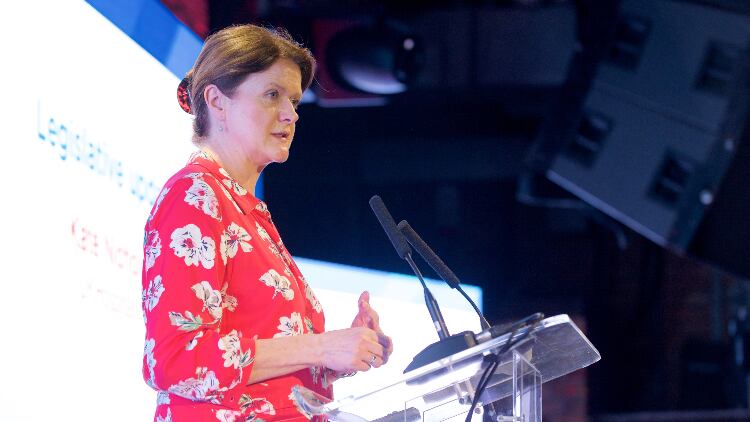The announcement came as statistics from the Office for National Statistics (ONS) showed the number of vacancies across the UK fell by 51,000 between December and February compared to the three months before – yet remained high at 1.12m.
Vacancies have fallen for the eighth consecutive period and “reflects uncertainty across industries, as survey respondents continue to cite economic pressures as a factor in holding back on recruitment”.
Nicholls said on Twitter: “Good to see record numbers of jobs being created in hospitality in today’s figures – a timely reminder of our importance socially, culturally and economically. As we grow and recover we can support more people into meaningful careers and invest in people and places.
“While it is good news vacancy rates continue to fall, there are still more than 1m across economy and 9% jobs unfilled in hospitality is holding back growth. With the right support in tomorrow’s Budget, we can address that and turbo charge back to work opportunities.”
Driver of growth
She added the ongoing job creating ability of hospitality demonstrates the sector’s ability to be a driver of growth and career opportunities.
Nicholls said: “It’s encouraging that there’s a slight fall in vacancies but they remain stubbornly high, still 56% higher than pre-pandemic levels. These persistent shortages continue to force venues to reduce trading hours and days, impacting their growth potential.”
“To fully harness what hospitality can offer to the nation and economy, we need to see Government action at the Budget to tackle these ongoing vacancies.
“Commitments to reform the apprenticeship levy and make changes to the immigration system to make it easier to recruit would be a clear message the Government backs hospitality to power economic recovery.”
Fellow trade body the Night-Time Industries Association chief executive Michael Kill said: “Despite the challenges, the night-time economy remains a significant employment sector to the UK economy and has an important role to play in its recovery.
“The industry still suffers from significant staff shortages and high vacancy rates, suggesting growth is still being held back despite the new jobs created in the past year.”
Kill explained the night-time sector has been one of the hardest hit citing statistics that show it provided 425,000 UK jobs within 38,000 businesses in 2018 but this had fallen to 392,000 jobs in 34,000 firms in 2021. However, estimates for 2022 suggest there has been a robust recovery with more than 400,000 jobs and 35,500 businesses.
He added: “As we head further into a cost-of-living crisis despite the bounce back in some business sector jobs and firm numbers, consumer spend, sector income, productivity and profitability, continue to struggle.
"This suggests the industry is operating on ever smaller margins and a large proportion of firms are in ‘survive’ rather than ‘thrive’ mode – employing staff to operate but having to exist with much lower income and low (or no) margins.”
Powerhouse of job creation
The British Institute of Keeping (BII) stated pubs will continue to be a sector synonymous with creating work for people.
BII chief executive Steve Alton said: “Pubs can and will be a powerhouse of job creation, offering flexible, skilled employment across all demographics.
“The recent ONS statistics bear this out, however, we need the right support from Government to allow us the opportunity to grow and thrive against a challenging economic backdrop.
“Our sector offers professional development and rapid career growth like no other sector, in every village, town and city, and will be key to levelling up and economic recovery across the whole of the UK.”
Analysis by the ONS also showed the UK employment rate was estimated at 75.7% in November 2022 to January 2023, 0.1 percentage points higher than the previous three-month period – an increase of 98,000 on the revised January 2023 figures, to 30m. The increase in employment over the latest three-month period was driven by part-time employees and self-employed workers.
Growth in average total pay (including bonuses) was 5.7% and growth in regular pay (excluding bonuses) was 6.5% among employees in November 2022 to January 2023.
Average regular pay growth for the private sector was 7% in November 2022 to January 2023, and 4.8% for the public sector.
However, in real terms (adjusted for inflation), growth in total and regular pay fell on the year in November 2022 to January 2023, by 3.2% for total pay and by 2.4% for regular pay. A larger fall on the year for real total pay was last seen in February to April 2009, when it fell by 4.5%, but it still remains among the largest falls in growth since comparable records began in 2001.




